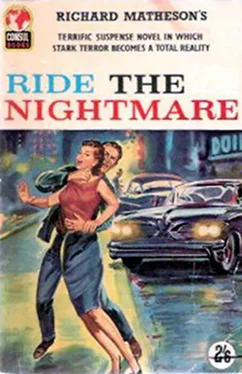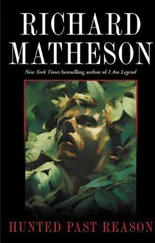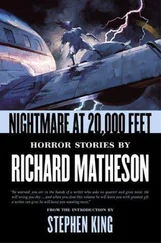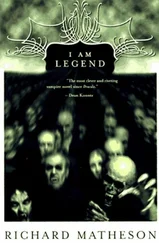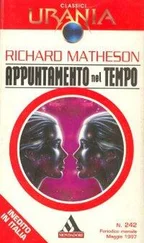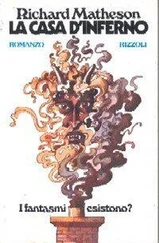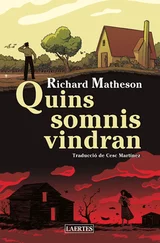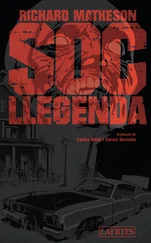Adam blew out breath.
“Banks open at ten,” he said. “You’ll get the money and bring it to us by eleven. You know where Latigo Canyon is?”
Chris shuddered, recalling his idea to bury Cliff in Latigo Canyon.
“Yes,” he said.
“Bring it there.”
”Where in Latigo Canyon?”
“You’ll find us,” Adam said. He looked at Chris appraisingly. “You can send the police there of course,” he said, “but I don’t think you will. You have too much to lose.”
Chris didn’t reply.
“Let’s make that three thousand,” said Adam.
“Three—!”
“Shut up.”
Chris’s throat felt as if it were lined with dust. He coughed to ease the sensation.
“Well?” asked Adam.
“All right.” Chris’s voice was almost a whisper. “All right, damn you.”
“Splendid,” said Adam lightly. “If you fail you’ll receive a visit either from the police or from us. Neither of which will be very pleasant.”
“I said all right.” said Chris.
Adam looked at him another moment. Then he said, “Pull over.”
Steve drew the dark sedan to the curb.
“Remove him,” said Adam.
Chris stiffened as Steve jumped from the car and ran around the front of it. He pressed back tensely as Steve jerked open the back door and reached in for him.
I can—” he started, breaking off as Steve’s fingers clamped over his wrist. He tried to pull free but was powerless against the stronger man’s grip. His cheek grazed the door jamb as Steve dragged him out.
“If I had my way—” Steve snapped. As Chris stared at his beard-blackened face, he felt a violent blow to his stomach that jack-knifed him over, cutting oft breath.
“Bastard!” he heard Steve’s savage oath. Another clublike blow struck him on the side of the head and he went flailing forward onto the paving. As he fell, he heard Adam’s voice through the blackening cloud around him.
“Be there.”
Then he was on one knee, gagging, hands pressed against his stomach, hearing the car door slam and the roar of the engine as Steve and Adam left. He struggled to his feet. Dazedly, he stumbled over to a palm tree and leaned against it, tears trickling down his cheeks. Breath did not seem to come. He kept gasping for it.
Across the street, an old man opened the front door of his house and looked at him curiously. Gritting his teeth, Chris pushed away from the tree and started walking. He couldn’t take a chance on the man talking to him.
Abruptly, a sob broke in his throat. Dear God, was he still thinking in terms of escape? He walked more quickly, bent over to ease the pain. What kept him going? Obviously, there was to be no end to it.
He braced himself. No, it was only temporary. He’d give them the money, they’d go to Mexico—and mail a letter from there demanding more money?
Chris stopped walking and stood staring at the sidewalk. One more complication. One more turn in the maze leading to a blank wall.
At the corner, he entered a drugstore and walked to the rear. Sliding into a phone booth, he sank down on the seat and pulled the door shut, grimacing at the pain in his stomach muscles. The sound of his breathing was harsh and labored as he pushed a dime into the slot and began to dial.
“Operator,” said the voice.
“Give me the police, please,” he said.
“One moment.”
There was a sound of dialing, a single buzz before Chris hung up.
He leaned forward, suddenly breathless, pressing his forehead against the cold metal of the telephone. He couldn’t, he just couldn’t. No matter what risks it entailed, he had to take them. To lose everything at his age; family, work, hopes; it wasn’t worth it.
Quickly, blanking his mind, he re-inserted the coin and dialed.
“Hello?” she said.
“Honey—”
She couldn’t disguise her exhalation of relief. “What?” she asked.
“I have to stay at the store a while. You’d better take the car.”
“Oh?”
“I’ll phone you there later,” he said, “and we’ll—discuss it.”
She didn’t answer. Chris winced as the pain in his stomach flared again.
“All right?” he asked. If only he could tell her to leave immediately without making her suspicious.
Another moment she was silent.
Then, softly, she said, “Good-bye, Chris,” and hung up.
“Helen—!” He’d realized, too late, what was wrong. She thought he was avoiding her.
He put the receiver back onto its hook and sat there heavily. It’s just for now, he told himself. She’ll understand later. I’ll make it up to her and everything will be all right.
* * *
Chris stood motionless in front of the store window looking in. It was a good display: neat, well-balanced, imaginative. He and Jimmy had worked it out between them two weeks before—Jimmy with his brief training in visual arts, Chris with his instinct for effective order.
He remembered how proud he’d felt of the display when it was completed. How he’d stood in front of the window for a long time looking at it. His store and its operation was an endless source of pleasure to him. At least it had been.
Chris looked at the wall clock inside the store. It was twenty-five minutes to ten. His eyes focused on the lettering—DENIS SCHOOL OF MUSIC—across its face. He remembered the day the head of the school had come into his store and offered the clock. Chris had taken it gladly. He’d just borrowed enough money to buy the store from Mrs. Saxton and he was in no position to turn down a free clock, advertising or no advertising.
A melancholy smile raised Chris’s lips as he recalled those first days of ownership.
Mrs., Saxton was old and tired, anxious to retire. That was why she sold out so cheaply; that plus the fact that she liked and trusted Chris. He’d been with her for almost five years and, during that time, the store had expanded markedly. When he’d started, it had been a run-down place with a few racks of sheet music, outmoded record albums, a modicum of instruments for rent or sale. Nothing like what it became after Chris began working there.
After the purchase, he expanded it further. He took out a lease on the adjoining store which had been vacant for almost two years and had the wall removed. He had racks built for a complete line of records, three listening booths installed as well as a counter with stools where all kinds of music were sold, from orchestral scores to children’s piano primers and including all the current sheet music. He had a new tile floor put in with a motif of bass and treble clefs and notes in the design. He enlarged his line of instruments and made an exchange agreement with the Denis School and others.
All this put him considerably into debt. He was unable, in the beginning, to afford help. He and Helen ran the store until Connie’s growth made working too difficult for Helen. Then Chris managed on his own. It was exhausting but joyous work. The weariness he felt at night was a wholesome one.
Little by little, his venture paid off. People from the area began patronizing his store to the exclusion of others. It was a pleasant place and Chris was a pleasant host. His reputation as a man who understood children no less than music broadened. He was asked, by the Chamber of Commerce, to take over the operation of the Junior Orchestra; invited to join the Chamber.
As business increased, so did the scope of his work. He began to arrange neighborhood square dances, organizing the local mothers into an entertainment committee. Gradually, he helped convert the Junior Orchestra into a polished group which gave well-received concerts all over the Los Angeles area. He sponsored and coached the Santa Monica Wildcats who played baseball in spring and summer, football in fall and winter. Life became more and more rewarding. The store did more business and he did more for the community. His idea for the creative workshop had come only a few weeks before and it was, already, halfway to fruition. All this, ended by a phone call in the night.
Читать дальше
